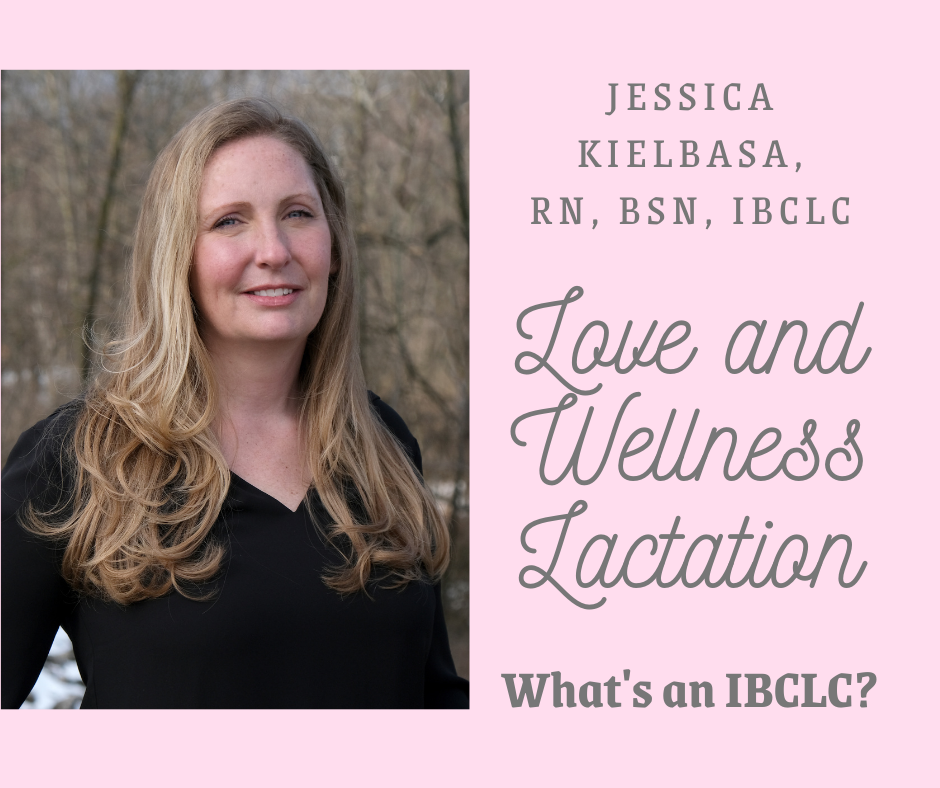What’s an IBCLC?
What’s an IBCLC? An IBCLC is an International Board Certified Lactation Consultant. Still not sure what that means? Long ago I had no idea what an IBCLC was either. I didn’t know there were different levels of breastfeeding support or training. It can be confusing. Since today is IBCLC Day, I wanted to shed some light on what my credential means, the training that’s involved to become an IBCLC, why it’s important for parents to see an IBCLC, and what some of the other lactation support credentials are out there and what their training looks like.
Today is IBCLC Day, and I find many people ask me what is an IBCLC, what do all those letters mean?
An IBCLC is an International Board Certified Lactation Consultant.
Still not sure what that means? Long ago I had no idea what an IBCLC was either. I didn’t know there were different levels of breastfeeding support or training. It can be confusing. Since today is IBCLC Day, I wanted to shed some light on what my credential means, the training that’s involved to become an IBCLC, why it’s important for parents to see an IBCLC, and what some of the other lactation support credentials are out there and what their training looks like.
IBCLC’s certification is global. The expectations of my knowledge base in the United States are the same as if I were across the globe in China. When a lactation consultant trains, we train with that big, global picture in mind. And because of that, there are IBCLC’s who provide telehealth visits for patients who aren’t even in the same country as them.
IBCLC’s have a credentialing board called the International Board of Lactation Consultant Examiners (IBLCE). The IBLCE set our standards of practice, our code of ethics and disciplinary action can be taken if we act outside of those areas. The Board develops the standards of education and the test every IBCLC must take in order to become an IBCLC.
Lactation Consultant is a protected title in the state of Ohio. This means only someone who is an IBCLC can call themselves a lactation consultant. Unfortunately, not every state has lactation consultant as a protected title so it can get confusing. Want to know if the provider you are seeing is an IBCLC? Every IBCLC worldwide is listed in this database https://iblce.org/ibclc-credential-verification/ If your provider isn’t listed, they may not be a lactation consultant. However, I always recommend checking the spelling of their name and ask if they are perhaps listed under another name if you don’t see them listed.
What does it take to become a lactation consultant? A lot of training, studying and hard work. The current minimum training requirements to be an IBCLC are:
1) complete 14 courses in health sciences this is also achieved by being an IBLCE recognized health professional as we already have those 14 health science courses
2) 90 hours of lactation specific education (referred to as continuing education recognition points or CERP’s) in the 5 years before examination, and at least 5 of those need to be focused on ethics. In 2021 candidates will also need an additional 5 hours of education on communication skills
3) IBCLC’s need between 300-1,000 hours of lactation specific clinical practice depending on the pathway they choose. I chose pathway 1, which means I completed 1,000 hours of lactation specific clinical practice prior to being able to take my exam.
4) Once candidates complete those 3 requirements above, they are eligible to sit the 4 hour, 175 question comprehensive international exam, and the IBLCE takes the very top percentage of scores to become certified that year.
5) IBCLC’s must recertify every 5 years either by exam or by having taken a minimum of 75 hours of continuing education CERP’s.
Some Lactation Consultants pursue additional training as well in order to provide the best care to their patients. I have taken therapeutic breast massage, and training on tethered oral tissue (lip, tongue and buccal ties) through the IBCLC Masterclass Oral Habilitation of the Breastfeeding Dyad, and the Gold Tongue tie symposium.
I became an IBCLC because of my own challenges with breastfeeding. I wanted to help other mothers who struggled as much as I did. I always say, my lactation consultants I saw saved my breastfeeding relationship and I now call them my “breast friends”.
What are some things a lactation consultant can help me with?
I provide prenatal breastfeeding classes to help families get breastfeeding/ chestfeeding or pumping off to the very best start. I can help with any thing from simple latching and positioning to more complex problems. I have helped families with pumping plans, oversupply, low milk supply, engorgement, mastitis, preparing to return to work, blebs, FPIES, food allergies, elimination diets, breastfeeding after breast reduction surgery or breast augmentation / implants, nipple pain, nipple damage, inverted nipples, flat nipples, nipple shields, tongue tie, lip tie, supporting families after frenotomy, breastfeeding while pregnant, paced bottle feeding, helping exclusively pumping parents to get baby back to breast/chest, helping exclusively breastfed babies learn to take a bottle, breastfeeding the baby with torticollis, teaching parents alternative feeding methods such as syringe feeding, cup feeding, finger feeding, spoon feeding, tube at breast, and supplemental nursing systems, and more.
Who’s Who in Lactation by the
United States Lactation Consultant Association
https://uslca.org/wp-content/uploads/2013/02/USLCAWhos-Who-in-Lactation20141.pdf
As you can see there’s a lot of breastfeeding support out there and that’s a great thing! If you are having problems with breastfeeding, IBCLC’s have the most extensive lactation training and provide the most comprehensive care.
I hope this blog helps you with what an IBCLC is and what we do. If you need lactation help, please schedule an appointment today.




